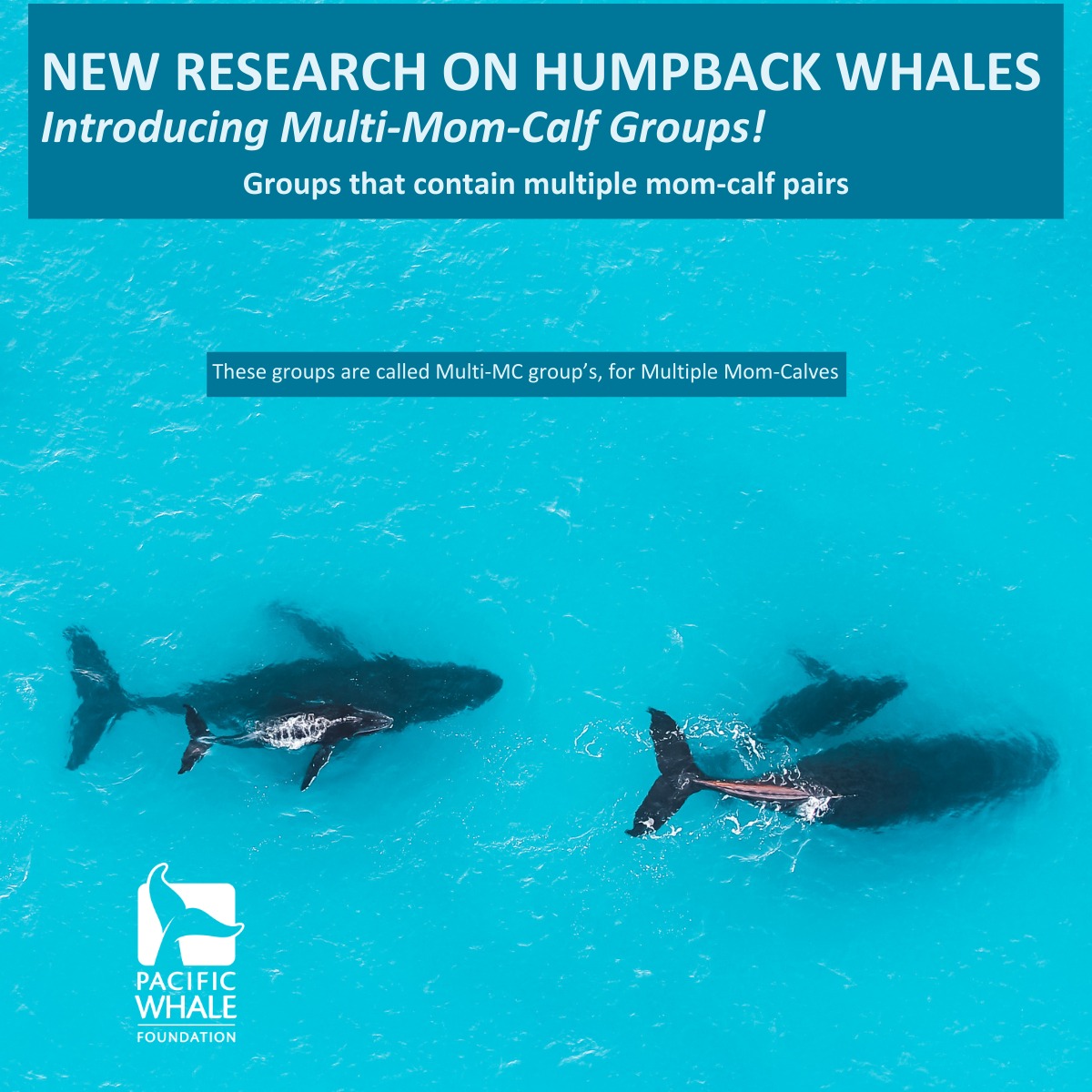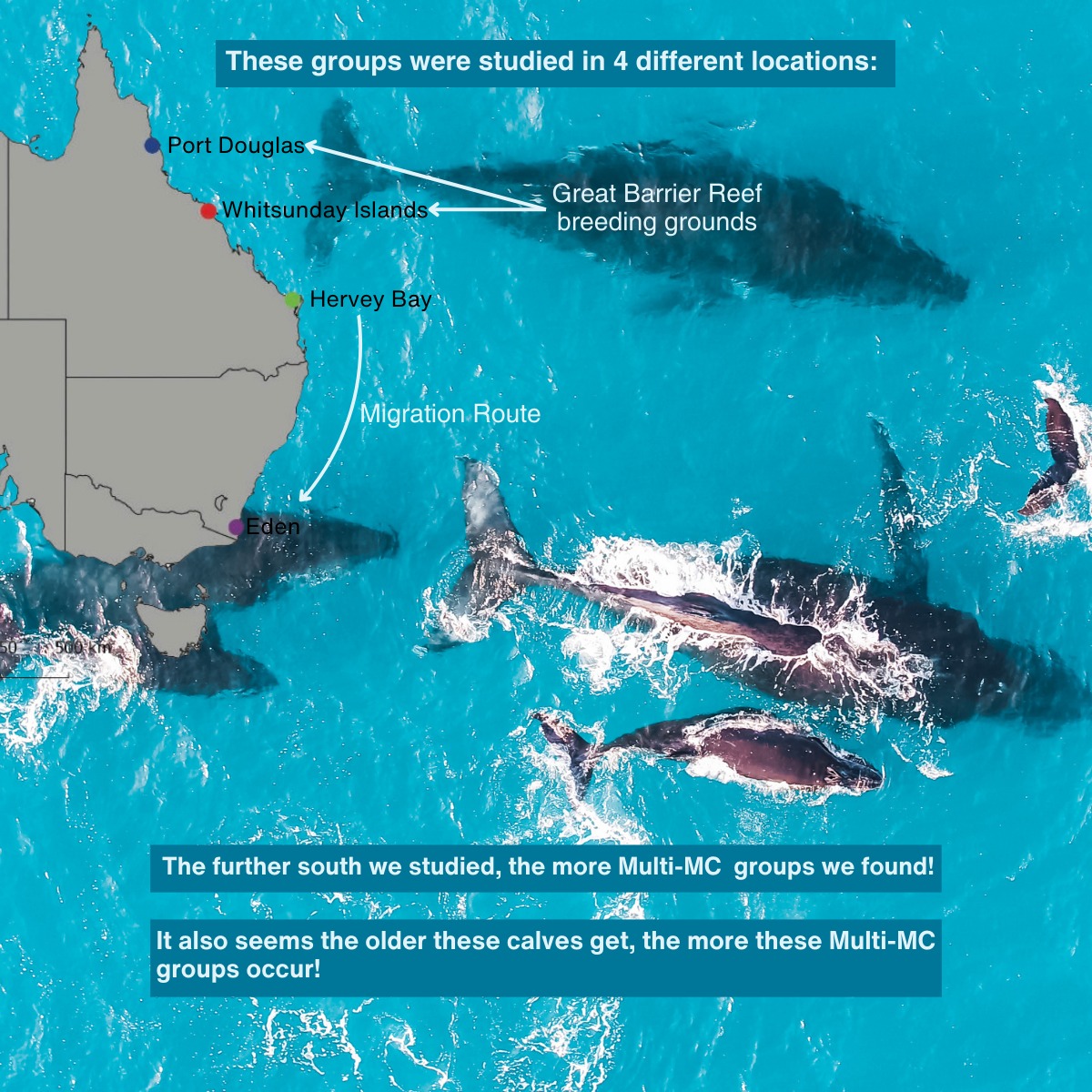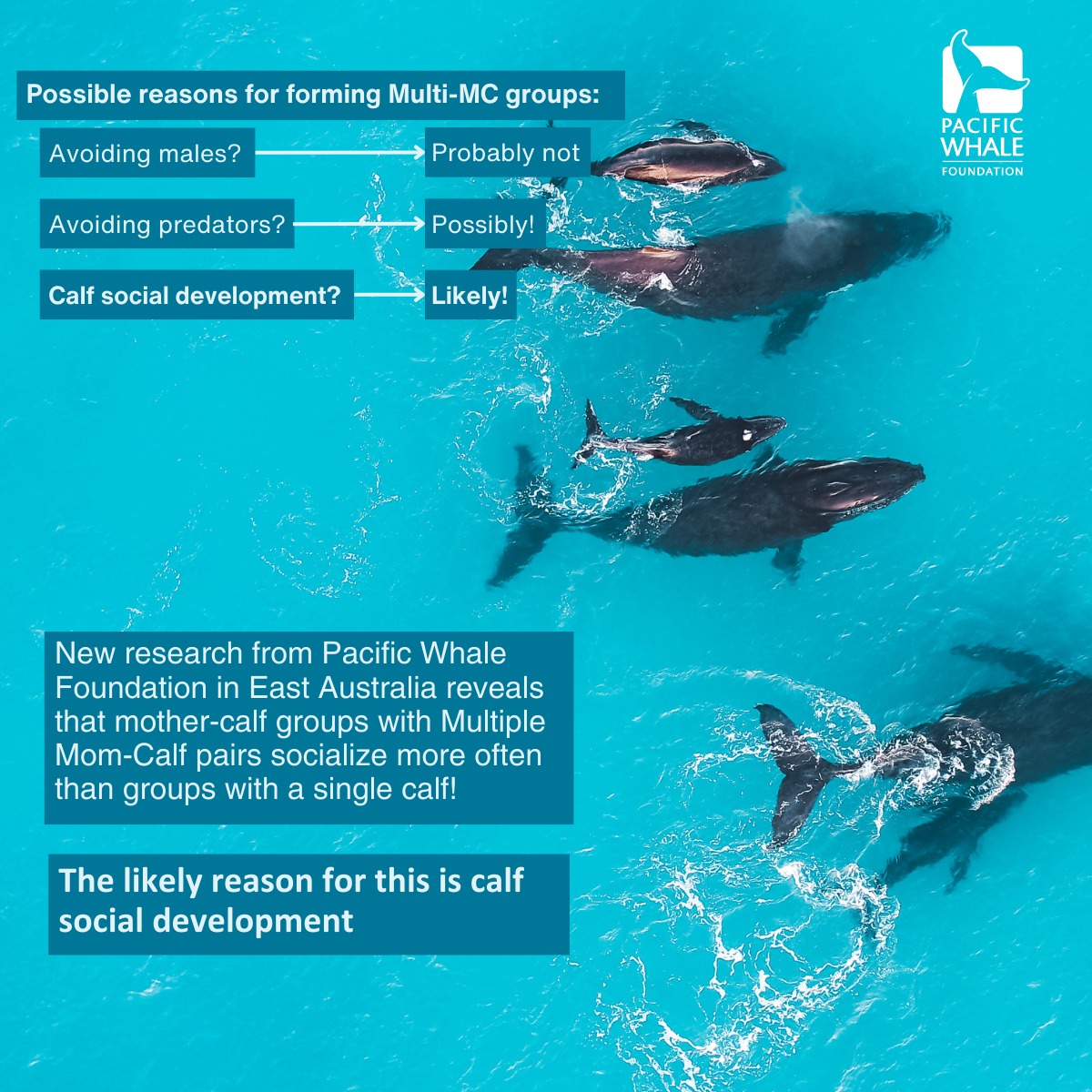When you think of humpback whales, you might imagine their impressive migrations or their iconic tail slaps - but did you know that their calves have their own special ways of learning and growing? Recent research conducted by the Pacific Whale Foundation research team, led by Dr Barry McGovern, has revealed a fascinating aspect of these whales' lives: the formation of 'multi-mother-calf' (multi-MC) groups.
What are multi-MC groups?
Multi-MC groups are gatherings of two or more mother-calf pairs that travel and interact together. While typically rare, these groups become more common as the whales migrate south and the calves mature.

Researchers have observed these groups in East Australia's Hervey Bay and Eden, with Hervey Bay acting as a popular resting spot and Eden as a feeding ground. The social interactions seen in these groups help calves learn crucial skills for survival, such as navigating migration routes, avoiding predators, and communicating with others.

Why do these groups form?
While it was once thought that these groups primarily served to protect calves from predators like killer whales, recent research suggests that their main purpose may be to support calf socialisation. Just like young humans, humpback whale calves learn best through interacting with their peers. These social skills are essential for their growth and independence.

Witness this in Hervey Bay!
If you're curious to see these incredible interactions, Pacific Whale Foundation Eco-Adventures Australia offers the Ultimate Whale Watching Hervey Bay experience. Not only can you witness these awe-inspiring whales in their natural habitat, but naturalists onboard can share insights from these ongoing studies. It's a unique opportunity to connect with these magnificent creatures while learning from a team dedicated to their conservation.
Conservation matters
As more boats travel through these whale habitats, the risk of vessel strikes increases, making awareness and education vital. By joining responsible whale watching tours like those offered by the Pacific Whale Foundation, you help support conservation efforts and research that aim to protect these precious marine mammals.
Experience the wonder of humpback whale mother-calf groups and gain a deeper understanding of their world - all while contributing to their future.

